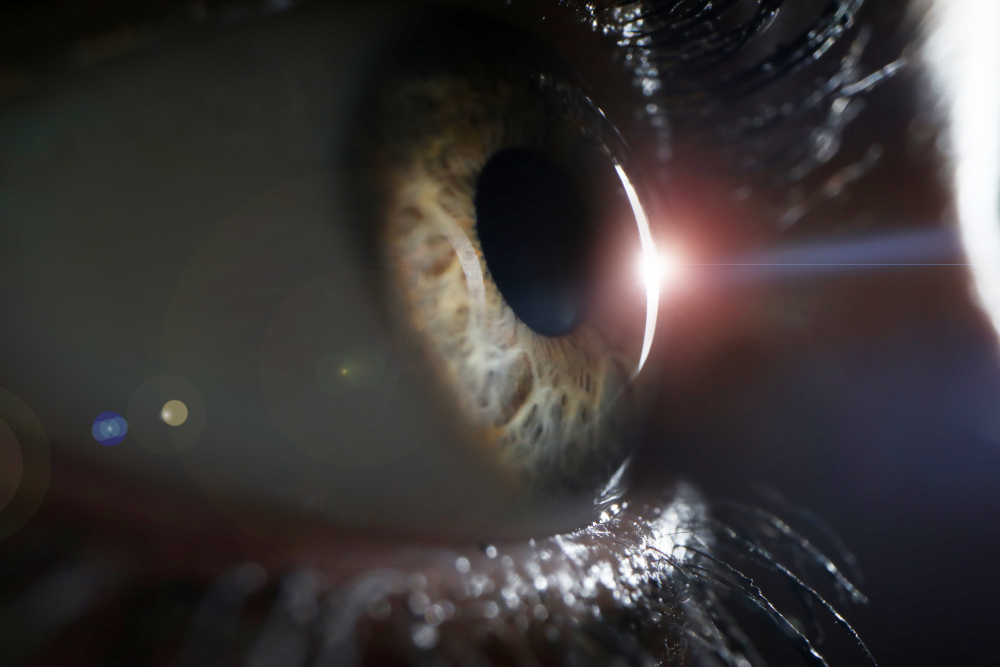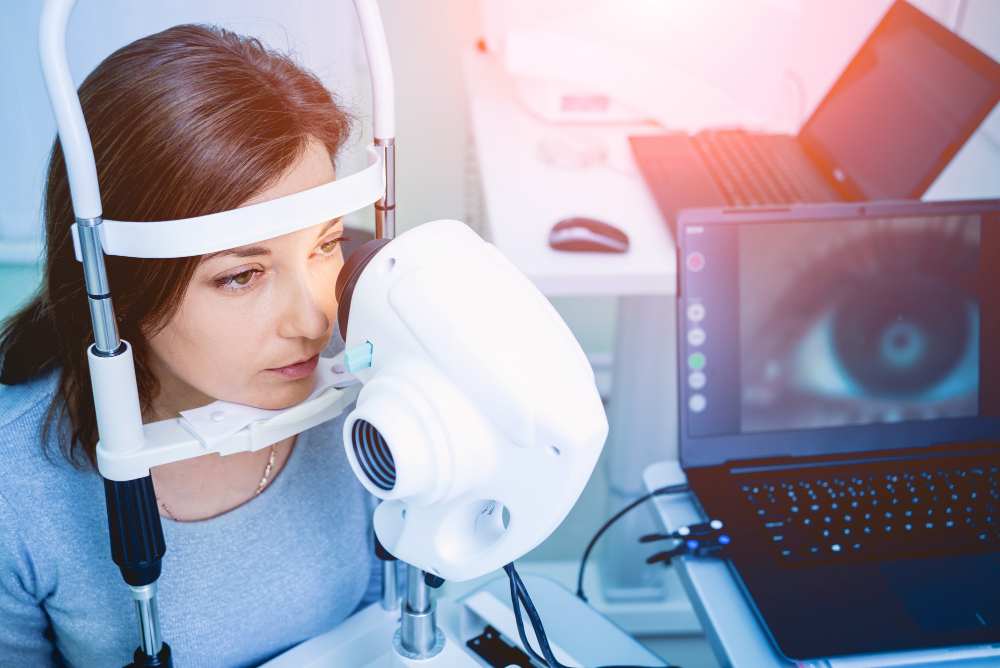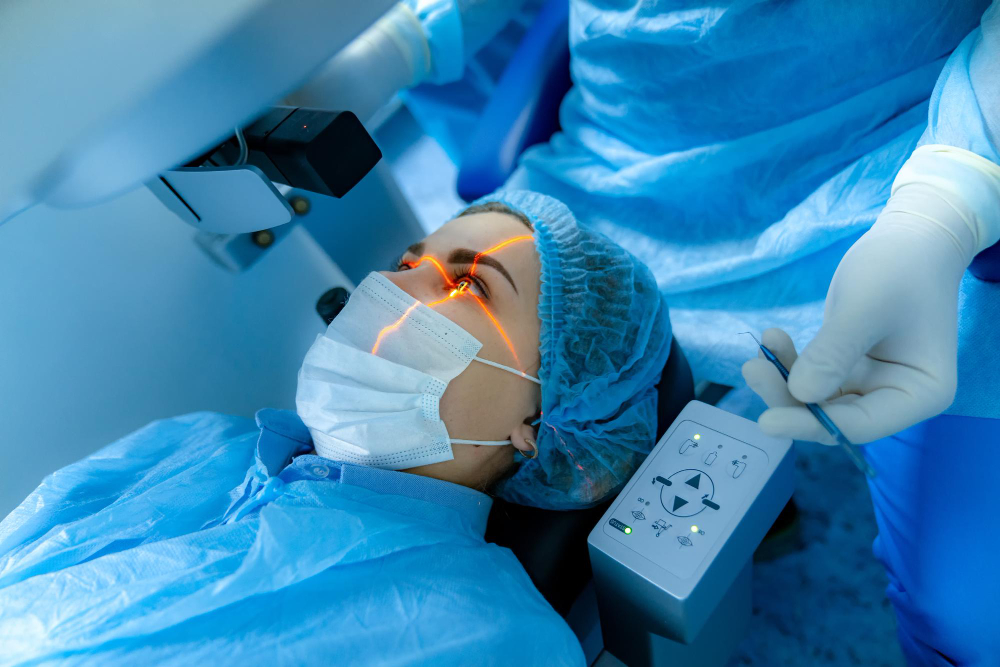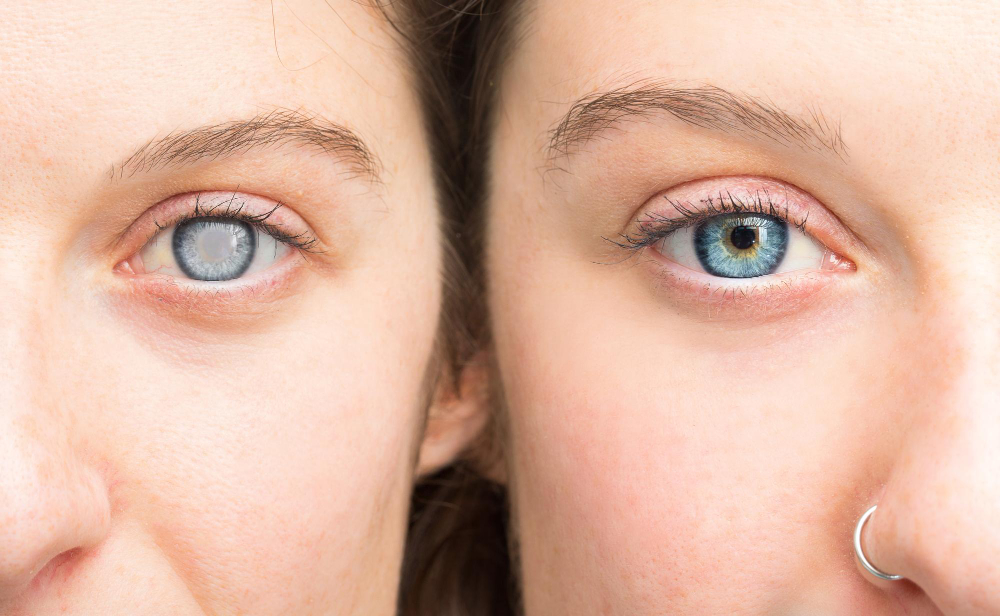Glaucoma Surgery
Glaucoma surgery reduces the pressure within the eye, which prevents vision loss. Although it preserves the existing vision, it cannot enhance eyesight.

What is glaucoma surgery?
If you are diagnosed with glaucoma, your healthcare provider might advise undergoing surgery to treat or control the condition. Glaucoma refers to various conditions that cause harm to your optic nerve.
The objective of glaucoma surgery is to enhance the drainage of aqueous humor through one of two methods: either facilitating a smoother flow of the fluid or decreasing the production of fluid in your eyes.
What are types of glaucoma surgeries?
Typically, laser surgeries are carried out in the office setting, while incisional surgeries are conducted in the operating room. Incisional surgeries involve cutting into specific body parts. Your eye care professional will discuss with you whether undergoing surgery is recommended and determine the most suitable type of surgery for your situation.
There are various forms of laser surgeries for treating glaucoma. These surgeries encompass:
- Laser trabeculoplasty.
- Laser peripheral iridotomy (LPI).
- Cyclophotocoagulation (CPC).

What Are the Laser Treatments?
Below are several categories of laser surgery that can be utilized to treat glaucoma.
Argon laser trabeculoplasty (ALT) is a procedure that reduces blockages in the eye, allowing fluid to flow out. Initially, your doctor may treat half of the blockages to assess its effectiveness before proceeding to treat the remaining half. ALT has a success rate of approximately 75% in individuals with the most prevalent form of glaucoma.
Selective laser trabeculoplasty (SLT): In case ALT is not effective, your doctor may opt for this procedure. The doctor uses a precise and low-power laser to target the areas of increased eye pressure. SLT can be performed gradually, and is often considered as the initial surgical approach due to its enhanced precision.
Laser peripheral iridotomy (LPI) is a procedure used to treat narrow-angle glaucoma, which occurs when the space between the iris and cornea is too small. This can lead to a buildup of fluid and pressure. LPI involves using a laser to create a small hole in the iris, allowing excess fluid to drain and relieving the pressure.
Cyclophotocoagulation involves the use of a laser to reduce fluid buildup and alleviate pressure in the eye when other treatments or surgery have been ineffective. This procedure targets a specific structure within the eye and may require multiple repetitions to effectively manage glaucoma symptoms.
Who may need surgery?
It will be determined if surgery for glaucoma is necessary based on various factors:
- if other methods of treating glaucoma have been successful
- how severe your glaucoma is
- any other eye conditions that you have alongside other long-lasting health conditions
It is crucial to monitor your vision changes closely if you have glaucoma, consistently go for regular check-ups with your doctor, and address any new symptoms immediately. Being proactive is essential because once vision loss occurs from glaucoma, it is irreversible.
Discuss with your doctor whether undergoing surgery could be the most appropriate next course of action for your glaucoma treatment strategy.

What happens during glaucoma surgery?
The outcome will vary based on the specific surgical procedure you undergo. In the case of glaucoma surgeries, they are typically performed on an outpatient basis, so you will return home on the same day.
With the exception of cyclophotocoagulation procedures, laser surgeries are typically conducted in the ophthalmologist’s office. However, for CPC procedures, your surgeon will likely perform them in an operating room.
Your eye specialist will administer local anesthesia, numbing eye drops, and/or numbing injections to ensure comfort during the procedures.
If you undergo a trabeculectomy, tube shunt surgery, MIGS procedures, or a CPC procedure, it is likely that you will be in an operating room. In order to alleviate any pain or discomfort, you will most likely require intravenous (IV) sedation or general anesthesia. With IV sedation, you will experience minimal pain or discomfort while remaining awake. However, if you opt for general anesthesia, you will be unconscious throughout the procedure.
What is the typical recovery time for glaucoma surgery?
The length of time it takes to recover after glaucoma surgery differs for each patient and type of surgery, but typically it takes around 3 to 6 weeks for most patients to fully heal. It is important to set aside the day after the surgery for recovery. Throughout the rest of the recovery period, it is generally advised for postoperative glaucoma patients to avoid engaging in strenuous activities. This would involve tasks such as lifting heavy objects, exercising, or doing stressful work.
Recommendations for the recovery after glaucoma surgery provided by rehabturk’s specialist.
To achieve the optimum recovery after glaucoma surgery, please adhere to the guidelines provided by your surgeon. This is crucial as these instructions are designed to safeguard your eyes during this period.
We trust that you have found this article about post-operative precautions for glaucoma surgery beneficial. If you have any inquiries, please feel free to get in touch with us at your convenience or schedule a consultation to initiate your glaucoma treatment process.
Don’ts
- It is advised to refrain from wearing contact lenses until you receive approval from your surgeon. We strongly suggest this precaution, as using contact lenses could potentially affect the healing of your eyes.
- Avoid wearing eye make-up for a minimum of two weeks and refrain from applying face cream as well.
- It is highly recommended to avoid exerting force on your eyes for a minimum of three weeks. Applying pressure to your eyes can potentially hinder the process of healing.
- After the surgery, it is crucial to avoid activities such as bending over, engaging in strenuous exercises like biking, jogging, upside-down yoga, or weight lifting without getting approval from your surgeon.
- To prevent any issues, it is advisable to refrain from making direct contact between your fingers and the bottle’s tip. It is equally important to ensure that the tip of the bottle does not come into contact with your eye.

In order to optimize your recovery, it is crucial to adhere to the instructions given by your surgeon. These guidelines are of utmost significance as they aim to guarantee complete protection for your eyes after the surgery.
Treatment in Türkiye:
The medical staff of surgical teams, doctors and consultants in Rehab Türk can provide the best treatment options and free consultations – by striving to keep abreast of the latest medical technologies and methods.
